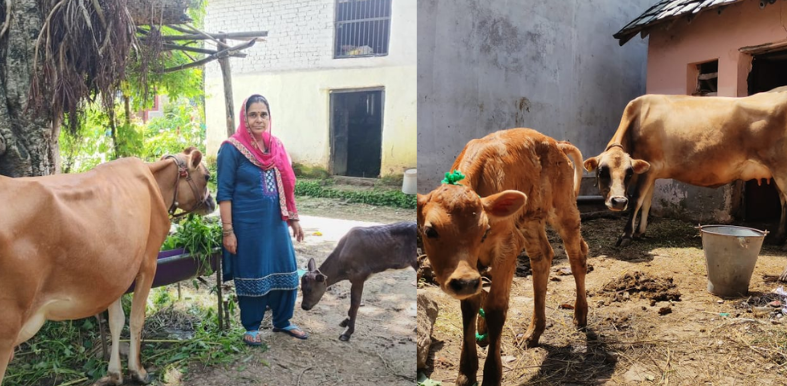How sex-sorted AI is transforming Himachal’s dairy industry with 95% female calf success

MANDI: The Animal Husbandry Department of Himachal Pradesh has reported positive outcomes from its accelerated breed improvement programme that uses sex sorted artificial insemination (AI) technology. The initiative is helping to boost the income of farmers by increasing the birth rate of female calves, addressing both economic and social issues.
Technology boosting farmer income
Himachal Pradesh is primarily an agrarian state and the livelihoods of many farmers depend on animal husbandry. According to officials, the income of farmers can potentially double if female calves are born in greater numbers. This is because female calves grow into cows that produce milk, which is a key source of income for farmers.
The Animal Husbandry Department is employing sex sorted semen technology to increase the likelihood of female calves being born. This technology separates the Y chromosome from the semen, significantly raising the chances of female births.
Dr Ashish Kumar Sharma, the incharge veterinarian at Baldwara Animal Hospital in Sarkaghat subdivision, explained that this method increases the probability of female calves by 90 to 95 per cent.
Addressing stray animal menace
In addition to boosting milk production, this technology also aims to reduce the number of male calves and bulls, which have become a growing concern in the state.
Also Read: https://thenewzradar.com/mandi-hospital-introduces-qr-code-system-to-end-long-queues-for-registration/
As their use in agriculture diminishes, these animals often end up roaming the streets, leading to accidents and other problems. By increasing the number of cows, the programme also provides shelter to stray cows, addressing both animal welfare and public safety issues.
Economic relief for breeders
Dr Sharma further elaborated on the benefits of the scheme. The department charges Rs 250 for two doses of the vaccine, which can be administered when the cow is in heat. If the cow does not conceive after the first vaccination, the second dose is provided at no extra cost. If a female calf is not born after two doses, the department refunds the Rs 250 fee. However, if a male calf is born after the first dose, no refund is given; if a male calf is born after the second dose, Rs 125, or 50 per cent of the amount, is refunded.
Also Read: https://thenewzradar.com/amid-financial-crisis-himachal-cm-says-ministers-wont-take-salary-for-2-months-asks-mlas-to-follow-suit/
“This initiative not only supports breeders economically but also contributes to reducing the number of stray animals,” Dr Sharma noted. He urged more breeders to take advantage of this scheme, emphasising that it is available for both Jersey and Holstein cows. So far, 64 cows have been artificially inseminated at Baldwara Animal Hospital, with 12 currently pregnant and three already having given birth to female calves.
Positive impact on local farmers
Ravipal Thakur, an Animal Husbandry Assistant at Baldwara Animal Hospital, highlighted the broader social and economic benefits of the programme. “This sex sorted semen artificial insemination programme has brought significant benefits to animal breeders. It reduces the number of male calves that often end up as stray animals, causing accidents and other issues,” he said.
Local farmers have expressed their gratitude for the programme. Yashoda Devi, a resident of Nagrota village in Baldwara, shared her positive experience. “I had my cow vaccinated at Baldwara Animal Hospital and my cow gave birth to a female calf about three weeks ago,” she said. Other villagers, including Saurabh Sharma, Jeevan Lal, and Raj Kumar Gupta, also reported successful outcomes with female calves.
These farmers praised the programme as a great initiative, noting that the need for oxen in agriculture had significantly decreased due to modern machinery like tractors. As a result, male calves are often left abandoned, wandering the streets. The vaccine helps address this issue, increasing milk production and income for farmers while reducing the stray animal population, they said.




